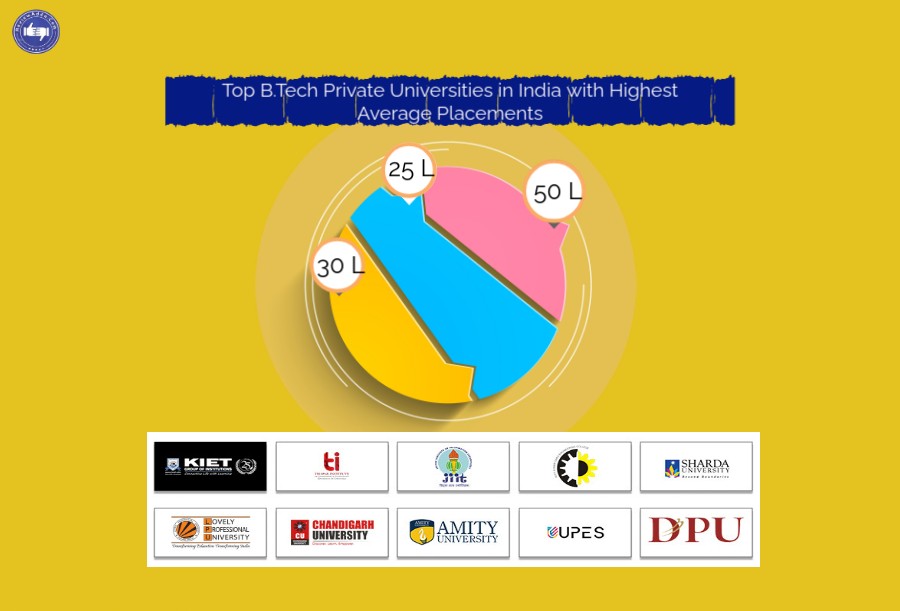BBA vs BCA which is better
After completing 10+2, students start contemplating their higher studies. They are perplexed by problems such as which subject to follow, which college to attend, and so on. Students often choose a course that will safeguard their future and a college that will give strong placement possibilities. Because graduation will serve as the foundation for their career, they want to choose the one with the finest prospects.
The first question that comes to mind when it comes to higher education is which degree is the best match for you. Some of the most common and popular undergraduate courses include B.Sc., B.Com., BCA, and BBA. Every course has a unique value and a comprehensive curriculum. Students sometimes mistake BCA with BBA since B.Sc. (Bachelors of Science) and B.Com (Bachelors of Commerce) curricula are stream-oriented.
Both industries are rapidly expanding, and the need for management and technology positions is increasing significantly. Indeed, the Bureau of Labour Statistics predicts a 12% increase between 2018 and 2028. This indicates that the IT and management industries will continue to develop.
So, which course is superior and has greater future potential? Which degree can assist you in increasing your bank balance and securing your future?
Before you decide on a path for you, you should know the differences between both the courses. You should have a clear understanding of the characteristics and scope of both BBA and BCA. Both courses are explained in detail here to help you make the best decision.
Bachelor in Business Administration (BBA)
You are ideal for BBA if you excel at presentations, have strong persuasion skills, and understand business methods. It is a three-year professional management degree separated into six semesters. A BBA course is open to students from any discipline (science, arts, or commerce). It is one of the most adaptable courses available.
The three-year BBA professional degree includes fundamental disciplines such as financial accounting, marketing, entrepreneurship, HRM (human resources management), digital marketing, and so on to help you develop your talents and personality. This course is designed to hone your skills and prepare you for positions in businesses such as corporations, banks, and financial institutions. It is recommended that you join in a traditional full-time degree, but you can also employ distance learning or an online BBA school if that is your preference and convenience.
The BBA degree has several specialisations. These specialisations form your practical, management, and communication abilities, as well as your capacity to make decisions. Many specialisations provide hands-on experience in the form of projects, internships, industry visits, and so on. It might be difficult to pick amongst the numerous specialisations. Choose a core subject based on your talents and interests. To make your job simpler, below is a general overview of each speciality and its potential.
Here is a selection of specializations from which to choose:
Business Administration- This is the best suited for those who want to unleash their business administration and management skills by learning its fundamentals. With this degree, you will be able to work in the business's management area, where employees are paid well.
International Business- If you are dying to work in multinational companies (MNCs), you should know the tactics of conducting business on an international scale. A BBA in international business will teach you how to enter and control the corporate world. It instructs you on international trade, accounting legislation, and taxes procedures.
Finance- This specialization suits students who enjoy playing with numbers and are skilled at analysis and reasoning. BBA Finance not only opens doors to new prospects, but also guarantees good pay.
Entrepreneurship- If you want to be your own boss and not work for someone else, a BBA in entrepreneurship will help you. It teaches you how to start a business from beginning, grow it, or expand your current family companies.
Hospitality- One of the most popular specialisations is a BBA in hotel management. It has gained traction as the hotel business has expanded. With this degree, you can even dream of working abroad.
Event Management- Another specialization in demand these days is BBA in event management. The course has proven to be one of the top BBA programmes. This course trains you to use your management abilities to organise, coordinate, plan, and market events.
Human Resource- A BBA in HR is one of the most popular specialisations. Human resources acts as a go-between for employees and management. This course will teach you the essentials of managing the organisational structure in order to keep workers satisfied. You're even trained to employ people on behalf of the company.
Tourism- This is ideal for people who enjoy travelling and wish to see new locations while working. With a BBA in tourism, you can work in travel firms that provide tourist-related services.
Marketing- Marketing is an everlasting industry since corporations will continue to introduce new items, and in order to sell them, they will need to promote them. Nowadays, even marketing is categorized into core subjects like BBA in Digital Marketing. Apart from drawing a good salary from the organization, marketers get many other perks. This is an advantage, which is why many students choose this area.
Retail- Without a question, the retail business is one of the most important contributors to the economy of our country. Choosing a retail specialisation may be one of the finest decisions you make for your career. A BBA in retail course will teach you about customer service, product management, accounting, inventory, and other topics.
Information Systems- This fundamental course teaches students how to utilise technology to solve business challenges. So it's like acquiring two talents at once: company management and computer programming. With this specialisation, you may enter the IT business and earn a decent wage with specific advantages.
BBA in global business, accounting, supply chain, hospital, healthcare, and sports management are some of the other specialisations available.
It is recommended to pursue an MBA (Masters in Business Administration) degree as a course following BBA because it opens up more professional prospects. If you want to polish your computer skills after doing BBA, you can still choose MCA for your master’s degree. As a result, you will have a superb combination of management and computing abilities.
Bachelor of Computer Applications (BCA)
If you are more interested in technical areas such as algorithms and coding and have strong problem-solving abilities, you should consider BCA. It is a three-year study with six semesters, much as BBA. The subject includes the study of several computer languages such as C, C++, Java, and others. It prepares students for careers in computer programming, software engineering, accounting, management, inventory management, and other related professions. This technical BCA course prepares students for a career in technology by teaching them the principles of hardware, software, computer languages, programming approaches, and other topics.
The BCA degree is becoming increasingly popular as the IT sector expands. The improvements in the IT business necessitate the hiring of additional computer specialists, resulting in a plethora of work options for graduates.
In general, it is a standard degree course at the majority of universities. However, several institutions provide online BCA courses or distance education programmes. After finishing your BCA, you should engage in the Masters of Computer Application (MCA) programme to hone your abilities. After completing BCA, you can work as a coder, but MCA will open doors to higher-paying positions.
A bachelor’s degree in Computer Application is a vast field and it offers various specializations.
Some of the most well-known are as follows:
Computer graphics- This is one of the most interesting specializations offered under the BCA certificate. You may learn various topics like graphics functions, algorithms of computer graphics, detailed study of computer applications, etc.
Internet Technologies- Internet Technologies teaches you how to apply practical skills to solve problems that arise from computer systems and their applications. It is quite popular among students and can be learnt easily via distance or online method.
Database Management- You will do well in this course if you are skilled with numbers. A BCA in Database Management System will educate you how to analyse a company's data demands, organise it, and keep it logically.
System Analysis- This course teaches exactly what its name suggests. It involves the study of businesses in order to analyse their goals and then design a system to efficiently attain those goals. This is one of the growing sectors in computer science.
Word Processing- As the name suggests, this subject teaches students how to process words. It teaches pupils how to typewritten materials using computerised typing and text-editing tools.
Financial Accounting- Commerce students are drawn to this subject since it deals with a company's income, costs, assets, and liabilities. Understanding financial accounting helps you to assess a company's profitability and financial status.
Animation- This course is intended for students who are interested in digital arts, 2D and 3D animation, and web design. It fosters your creative and intellectual abilities while also introducing you to the principles of graphic design and virtual reality.
Personal Information Management- Due to a rise in internet security breaches, this topic has effectively captured attention. This management study offers you control over your personal data and allows you to save it securely online.
Some of the most popular specialisations among students are included in the preceding list. However, as technology advances, new specialisations and domains, for as BCA in music and video processing, may emerge.
Career Prospects
Job opportunities after completing BBA
Candidates who complete a BBA course get access to a variety of career prospects. BBA graduates are eligible to apply for the following positions:
- Marketing executives are in charge of both promoting items and developing marketing strategies.
- Human resource managers are responsible for hiring, training, and managing employees inside a company.
- Business Development Executive: Business development executives are responsible for identifying new business opportunities and launching revenue-generating projects.
- Operations managers are responsible for ensuring that an organization's day-to-day operations run smoothly and efficiently.
- Financial analysts are in charge of assessing financial data and offering investment suggestions to management.
- Management Trainee: Management trainees are trained in several areas of a company to prepare them for future leadership responsibilities.
Job opportunities after completing BCA
Candidates who complete a BCA course get access to a variety of career options. BCA graduates can apply for the following positions:
- Software developers are responsible for designing, developing, and maintaining software programmes.
- Web Developers are responsible for the design, development, and management of websites and web applications.
- Database Administrator: Database administrators are in charge of running and managing a company's databases.
- System Administrator: System administrators are in charge of managing and administering a company's computer systems and networks.
- Technical Support Engineer: Technical support engineers are in charge of assisting clients with technical issues and resolving software and hardware issues.
- IT Consultant: IT consultants counsel and advise firms on how to use technology to achieve their goals.
Considerations while choose between BBA and BCA
When considering whether to pursue a Bachelor of Business Administration (BBA) or a Bachelor of Computer Applications (BCA), there are several factors to consider. Here are a handful of the most important:
- Career Objectives: It is vital to determine what career you want to pursue after completing your degree. A BBA is a better choice if you intend to work in management, finance, marketing, or entrepreneurship. If you wish to work in computer science, software development, or information technology, a BCA degree is a better choice.
- Curriculum: The curriculums of both programmes differ, therefore it is critical to compare them before making a choice. The BBA programme focuses on business disciplines such as finance, accounting, economics, and management. In contrast, BCA encompasses programming languages, algorithms, operating systems, and database administration.
- Skills: Another element to consider is the talents you wish to build during your degree programme. Soft skills such as communication, leadership, critical thinking, and problem solving are emphasised in the BBA programme. BCA places a premium on technological abilities including coding, software development, and database administration.
- Job Prospects: Analysing the employment market and determining which degrees have the best career prospects is crucial. BBA graduates can work in a variety of sectors such as banking, marketing, sales, and finance. BCA graduates, on the other hand, can find employment in software development firms, information technology organisations, and tech startups.
- Personal Interests: It is critical to select a degree that corresponds to your own interests and passions. If you enjoy working with technology and are interested in programming and software development, BCA may be a better alternative. A BBA degree may be the right choice for you if you are interested in business and management.
Finally, the decision between BBA and BCA should be based on your personal aims, interests, and professional goals. It is vital to undertake research, weigh all options, and make an informed decision that will help you achieve your long-term objectives.
Final Statement
It makes little difference the educational programme you take; you must be alert to chances. Attending seminars and studying theory will not assist you. Your employment chances will grow as you engage in more internships and research programmes. We make certain that you get the most out of your educational programme.




.jpg)
